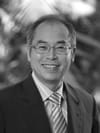Previous Post
An Exciting Age for Penang’s Manufacturing Sector
4 min read
With the current global landscape, Penang is well positioned to contribute towards the exciting growth of the global E&E industry. The East versus West technological competition has provided Penang with a golden opportunity to be a neutral supply hub for both competitors.
Next Post
Risk Management in Sports
5 min read
NOWADAYS, WE ARE all encouraged to live an active lifestyle, through exercise generally, i.e., any movements that contribute towards our physical and emotional...
You might also like
Uniting Communities Through Sports and Traditions
2 min read
The organisation of groups of people with similar goals have long been a key aspect in human interaction and social functions – it is also what sports clubs are founded upon.
Negaraku: The Sonic Totem of the Nusantara (Part Two)
4 min read
THE ATMOSPHERE WAS abuzz as the resonant “Merdeka” call rang in the newly built Stadium Merdeka. It was 1957. Malaya, the newly independent nation, needed not o...
eSports in Malaysia: What Awaits Competitive Gaming?
5 min read
WHEN LAN GAMING cybercafes first emerged in the early 2000s, they were all the rage. They provided a social and competitive environment for gamers to gather and...





